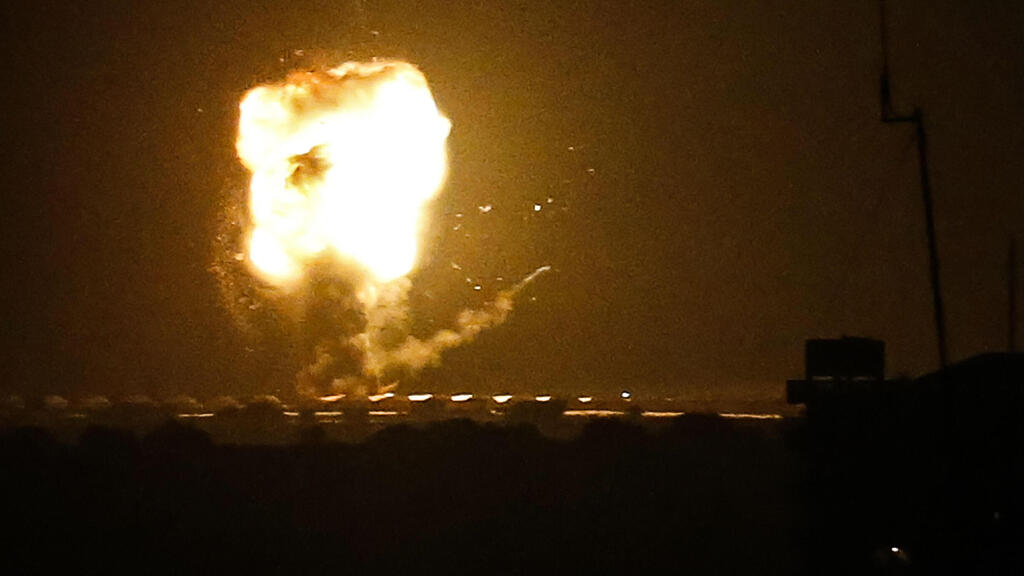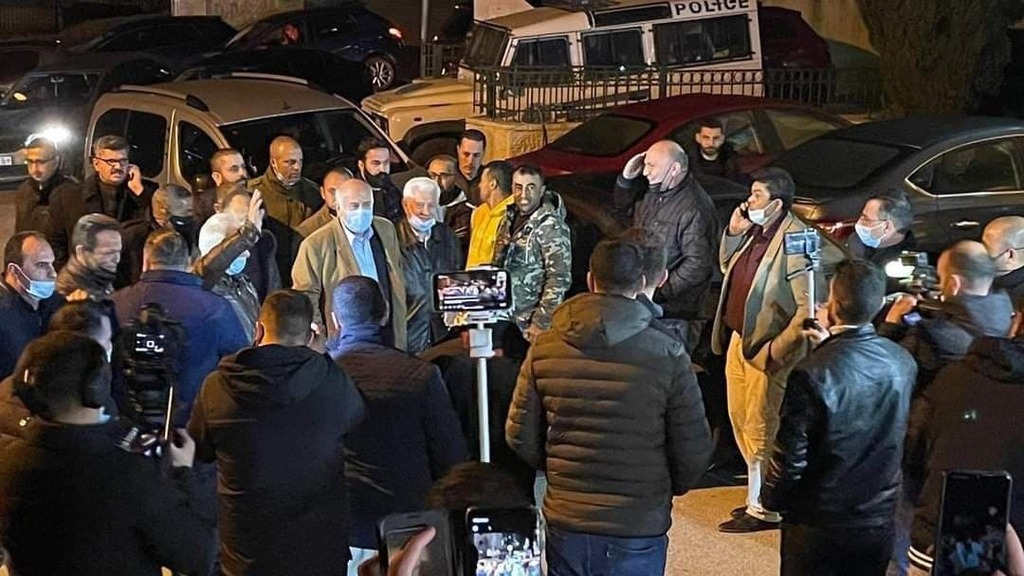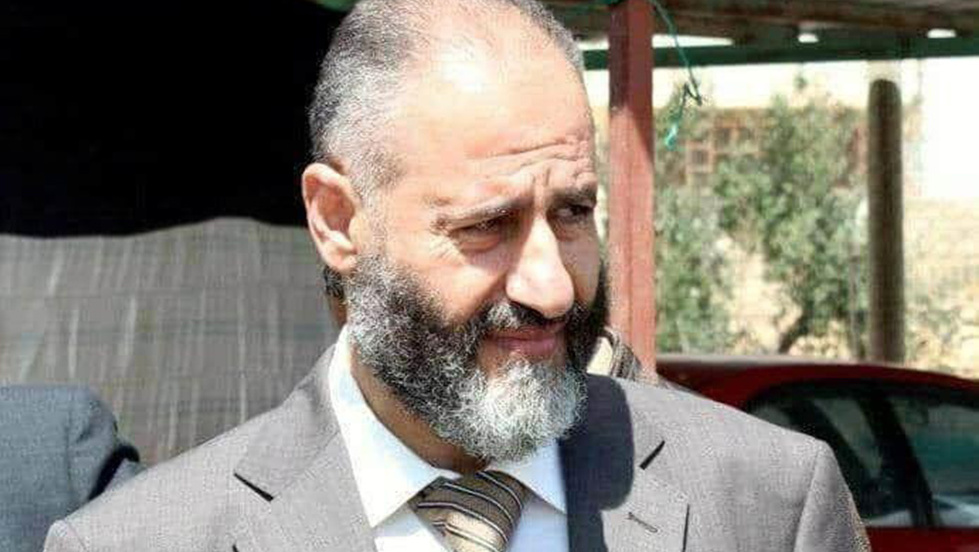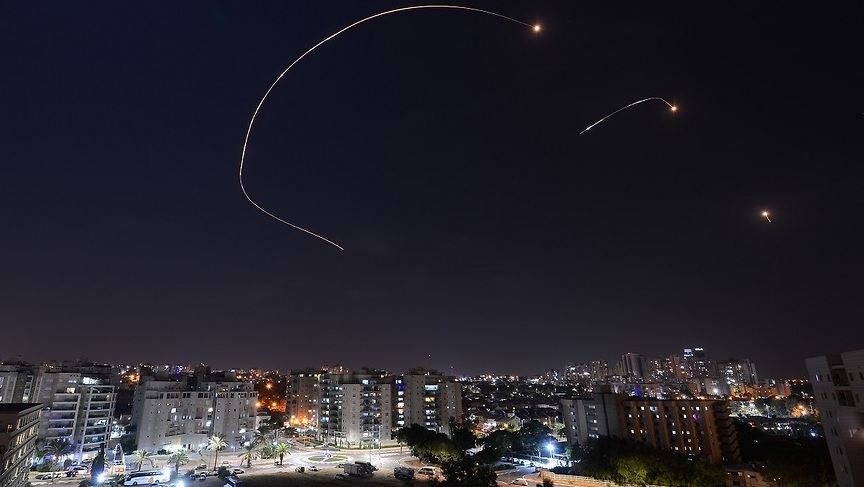Getting your Trinity Audio player ready...
Two rocket attacks in two days disturbed the relative calm along the Israel-Gaza border at the end of last week, although no damage or injuries were reported.
Israel responded to the rockets by striking what they described as Hamas rocket production sites and military strongholds. No injuries were reported in Gaza either.
4 View gallery


IDF strikes Hamas targets in Gaza on Saturday in response to rocket fire
(Photo: AFP)
Still, the seemingly random attacks begged the question, why now? What is the message being sent from Gaza and to whom is it directed?
The Qatari aid, a transfer of cash into the Strip, continues undisturbed, the infrastructure projects Israel signed off on to ensure a steady flow of petrol for Gaza's electricity is proceeding according to schedule and Gaza's fishermen are free to fish to an agreed distance offshore.
One theory is that the rocket fire came exactly 20 years after the first rocket was launched from Gaza towards the border settlements on April 16, 2001. But Hamas may not want to risk damage to its infrastructure in order to mark such an occasion.
Another possible reason is the upcoming Palestinian elections that are due to take place in May and the increased pressure by Israeli security officials on Hamas members in the West Bank to refrain from participation and impede on the organization's efforts to increase its representation in the area.
4 View gallery


Jibril Rajoub delivering the Fatah candidate list for the Palestinian parliamentary elections set for May
Dozens of operatives, some seen as the most senior in the terror group's West Bank infrastructure, have been detained. Among them candidates of the Hamas party, Islamist students and former Israeli prisoners who are affiliated with Hamas.
Arrests were made all over the West Bank and not only in Hamas strongholds. Most of those detained were quickly released after they were subjected to warnings by the Shin Bet security service, some were warned after security officials paid visits to their homes, all were told they must remove their names from the party list and refrain from campaigning for the group.
One such candidate was Nayef Rajoub, from the West Bank city of Dura near Hebron. Rajoub, the brother of Fatah senior official Jibril Rajoub, said that when Shin Bet officials came to his home, he was warned that his role in the May elections should be limited to casting his vote only.
4 View gallery


Senior Hamas official Nayef Rajoub warned by Shin Bet to limit election activity to voting only
The arrests of Hamas operatives in the West Bank began in February but at the time, the organization's leadership in Gaza made it clear that if Israel interfered in the Palestinian election process, the terror group would retaliate by interfering in Israel's national elections in March, with rocket fire.
The message was received on the Israeli side and no additional arrests were made until the elections in Israel were over but were resumed soon after the ballots were closed.
4 View gallery


The Iron Dome missile defense system intercepting a rocket from Gaza on the day of Israel's national elections on March 23
(Photo: Avi Rokah)
Palestinian parliamentary elections are just over a month away. Campaigning is in full force, but Israel is determined to prevent Hamas from increasing its strength on the West Bank.
Hamas is indicating its anger at Israel's moves on the West Bank, by its recent rocket fire that is aimed thus far at open fields and not at residential areas. Israel's response is to target quality Hamas facilities, never before targeted in response to such low velocity attacks.
The dialogue between Israel and Hamas continues to be carried out by exchanges of fire and as long-as the Palestinian election campaign is underway, the risk of increased violence on the Gaza border persists.
Whether or not the elections will take place remains an open question. They may still be canceled or postponed indefinitely.

